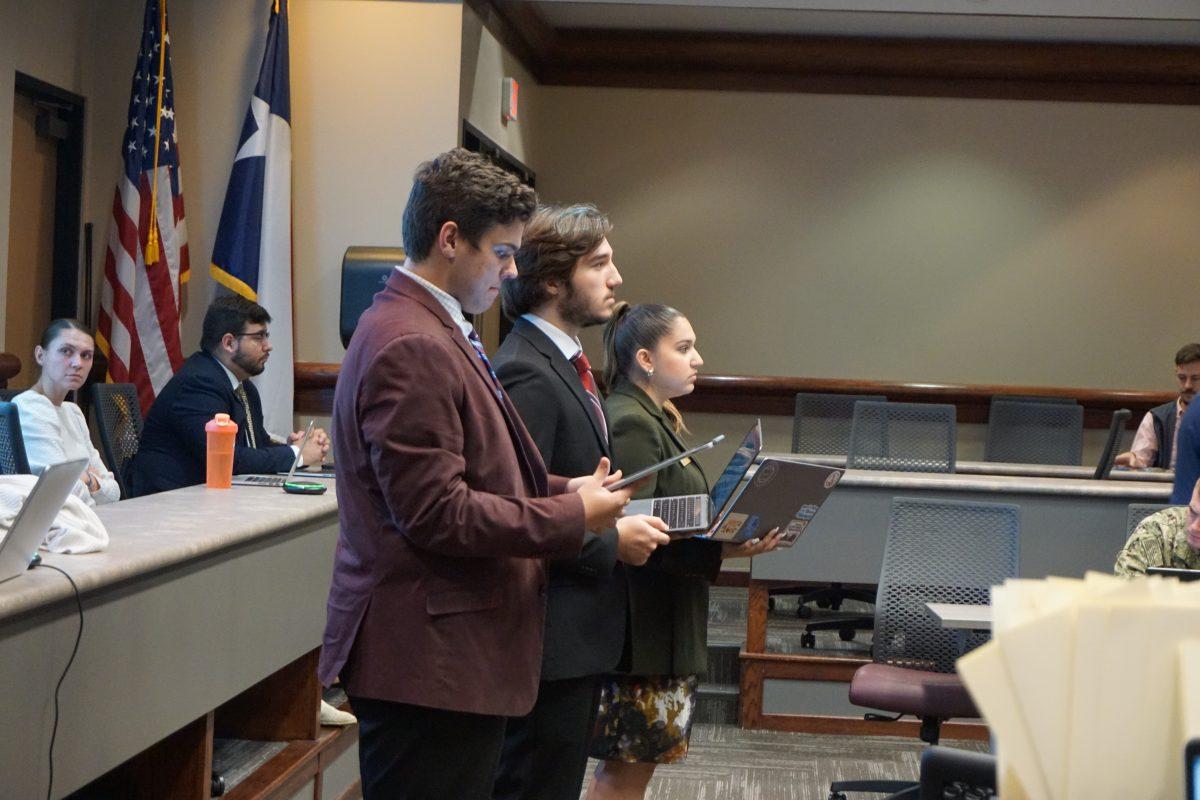At their Nov. 2 meeting, the Texas A&M Student Senate unanimously passed two bills that seek to support struggling college students.
The Expanding Open Education Resources Bill acknowledges the rising cost of the prices of textbooks and additional course materials, placing a burden that affects students’ academic performance. The bill urges the Texas Legislature to further expand and maintain the sustainability of statewide Open Education Resources, or OER programs.
The bill presented several concerning statistics to support the need for accessible materials.
The bill states that students at four-year colleges spend an average of $1,049 a year on textbooks. According to an article by Intelligent, about 1 in 5 students work more than 35 hours a week to pay for their course materials; nearly 1 in 3 students skip meals in order to afford books and course materials.
Legislative Relations Chair Patrick Englehart debated in favor of passing the bill, urging senators to vote for it.
“I think [OER] is something that can really be done at the Texas Legislature this upcoming session,” Englehart said. Additionally, Englehart encouraged A&M students to lobby their state legislators.
The Expanding Open Education Resources Bill passed by a vote of 39-0.
The senate also passed the Students Experiencing Homelessness Bill which seeks to increase access to resources for post-secondary students experiencing homelessness, according to the bill.
The bill details the McKinney-Vento Act, which states that children experiencing homelessness have a right to free, appropriate education, connecting preschool to 12th-grade students with agencies and resources for support. The act defines a homeless person as an individual who lacks a fixed, regular and adequate nighttime residence.
However, there is no provision that offers such resources at the post-secondary level.
The bill cites a study from The Hope Center, which states that homelessness affects 14% of students at four-year institutions nationwide. Due to rising costs for students attending college, such as increasing tuition rates and rising rent, 20% of students self-reported that they struggled with food and housing insecurity.
“As of November 2021, 44 A&M students were confirmed homeless or at risk of being homeless, which is likely an underrepresentation of the true number,” the bill reads.
The bill urges the Texas Legislature to expand the McKinney-Vento Act, specifically for a provision for a part-time liaison to assist post-secondary students. The part-time liaison would serve as the first point of contact, connecting affected students with homelessness resources and assisting students with applying for financial aid.
“I learned how this issue affects students at [A&M] and also students all around the state,” Englehart said.
Englehart, a sponsor of the bill, said he was initially unaware of the magnitude of the issue but since recognized that the issue needs to be addressed.
“So often, it’s a hash work of systems and resources for people experiencing homelessness. It’s very difficult for [homeless students] to navigate,” Englehart said.
The Students Experiencing Homelessness Bill passed by a vote of 32-0.
The Student Senate also heard a special presentation from the Student Affairs Fee Advisory Board, or SAFAB, Chair Clayton Elbel. SAFAB, composed of nine A&M undergraduate and graduate students, reviews Student Affairs requests and recommends how the University Advancement Fee, formerly the Student Service Fee, is allocated and spent to benefit students.
SAFAB currently receives requests from 18 departments within the Division of Student Affairs. Many of the Student Affairs departments are critical to supporting current students, such as the Career Center, Disability Resources, Student Activities and the Veteran Resource & Support Center.
For the 2024 Fiscal Year, SAFAB received requests for a total of $1,302,666. SAFAB discusses and votes on all received requests, taking student feedback into consideration. After reviewing and voting, SAFAB recommends spending $700,011.
Most of the funding would go towards staff adjustments across multiple departments. Clayton said that there were many departments struggling with underfunded staff, especially compared to other universities.
After reviewing each line item, the Senate approved SAFAB’s report by a vote of 38-1.










